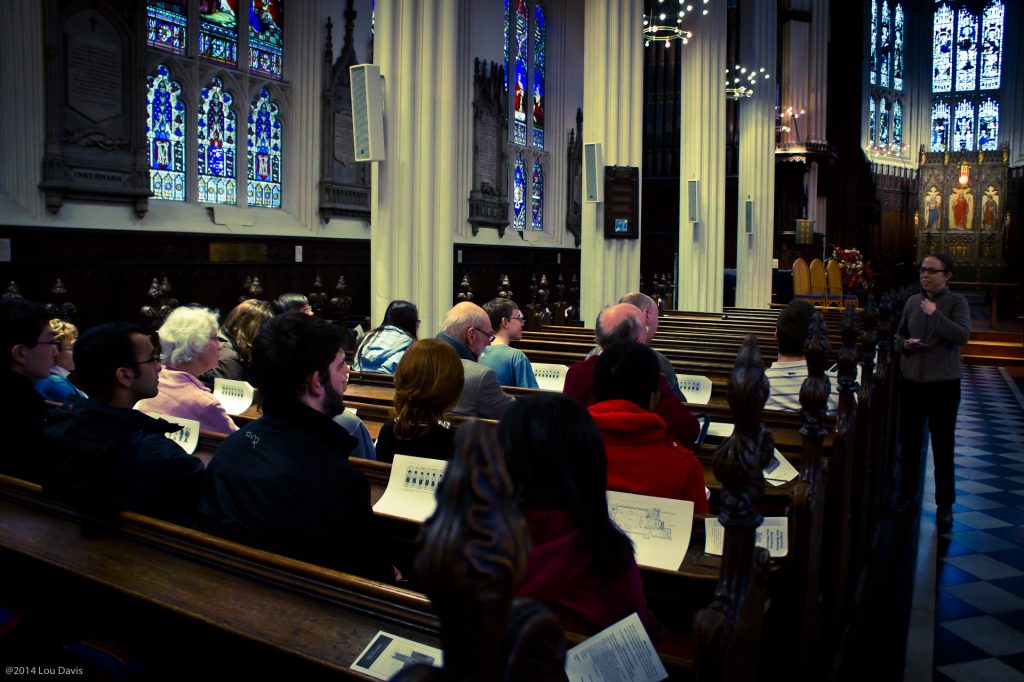
Jean Carletta first thought of setting up something like HeatHack when she and Martin Haley, an engineer, needed to solve some tricky heating problems at Christ Church Morningside in Edinburgh. In 2014, she was working for the University of Edinburgh and was awarded a Beltane Public Engagement Fellowship to think about how to use what she had learned to help other venues. The University also provided electronic supplies and access to some commercial instruments to support events and projects that brought students and community volunteers together to look at where the heat goes in some difficult buildings, with Dimitri Mignard, John Lee, Priscilla Cheung-Nainby, and John Brennan all providing help in one way or another.
To understand heating control problems, we needed a cheap way to get regular air and pipe temperature readings, preferably straight to the internet. This wasn’t available commercially at the time. We developed and tried it, plus a host of ways to interest community organisations in looking at their heating, using a 2015 grant from the John Templeton Foundation’s Scientists in Congregations Scotland programme to Lou Davis at the City of Edinburgh Methodist Church, with support from volunteers at Christ Church Morningside and Tim Davis as a volunteer electronics expert.
In 2015 it was hard to interest people in energy costs or climate change, so for some years we were only using our skills to help a few venues a year. Times have changed! In 2021, HeatHack became a part of The Surefoot Effect CIC, with a grant from the Royal Academy of Engineering Ingenious programme to develop what we offer today – self-guided group sessions that help community building operators reduce their energy use immediately and plan for bigger changes to decarbonise their heating and move to net zero.
Even now, commercial options for sending live readings to the internet are still more expensive than most venues are willing to consider, but much more convenient than retrieving the data every few weeks. We still offer volunteer-built monitors groups can try for this, with an online guide for how to spot wasted energy. Colin Kerr is our current electronics volunteer. Kevin Doherty designed and implemented how data gets from the monitors into plots online, as well as working with venues to understand what they needed to support them in reducing their energy use.
Our Royal Academy of Engineering funding has now finished, but Surefoot is continuing to offer the HeatHack programme. We’re happy to continue to support individual groups, but we’re also building relationships with organisations that own, use, or support many groups with buildings so that they can use our programmes too. For instance, the Scottish Episcopal Church has adopted the programme as part of their plan for reaching Net Zero. They administer the programme for their groups, but ask us for support when they need it.
Although much of our experience is with church halls and worship spaces, HeatHack is not a faith group. It has always mixed people of faith with others who simply want to help people and make their local communities stronger. After all, we share common cause! Our current programme still mostly attracts churches, but it has been used by buildings of all ages and many types. We want to help all buildings that serve their communities, whoever runs them.